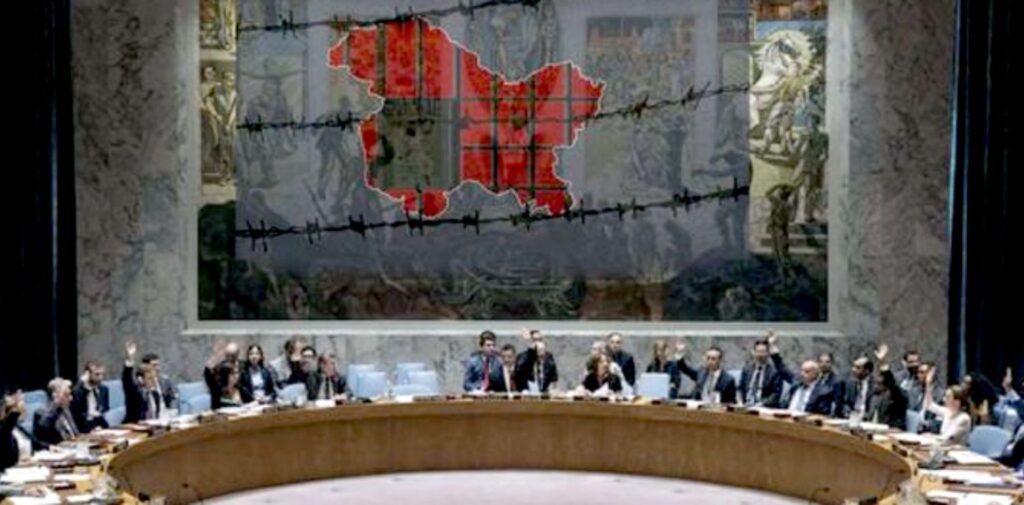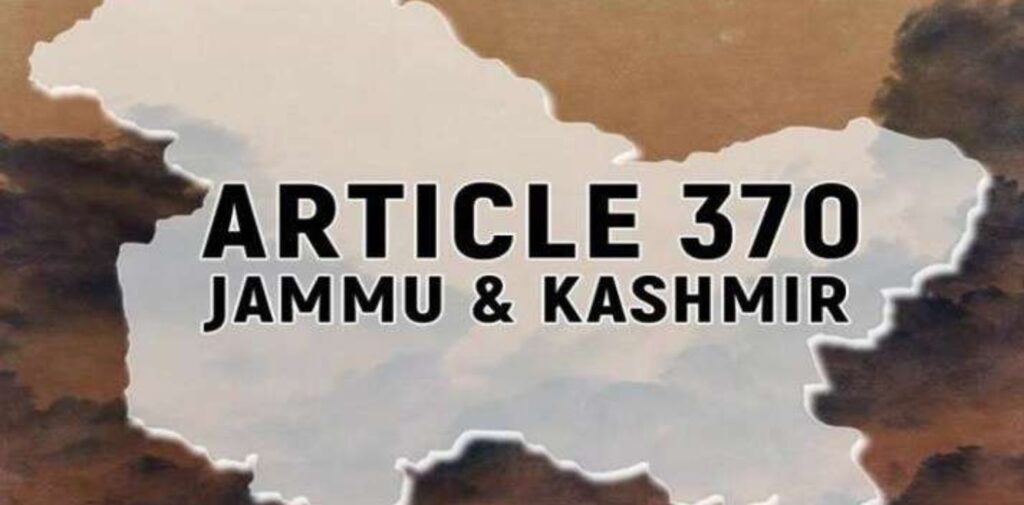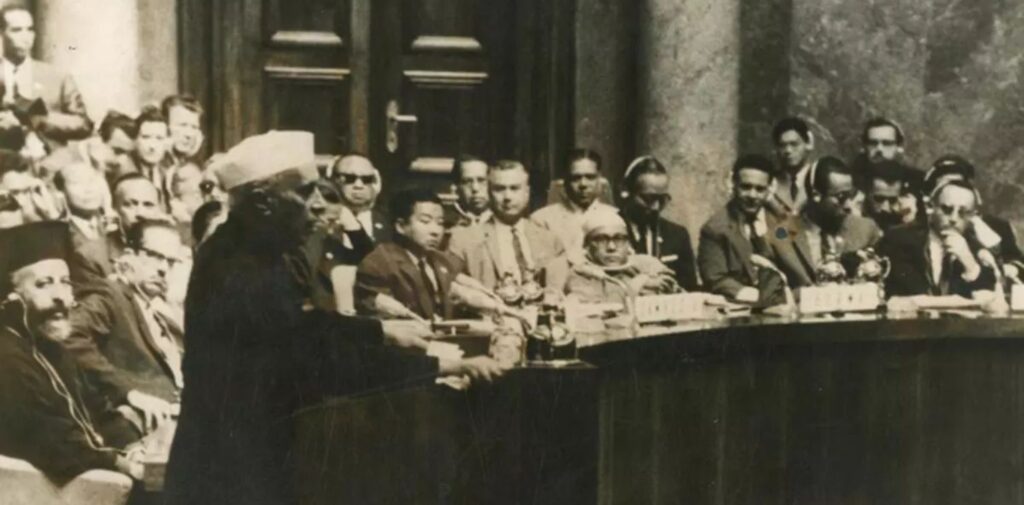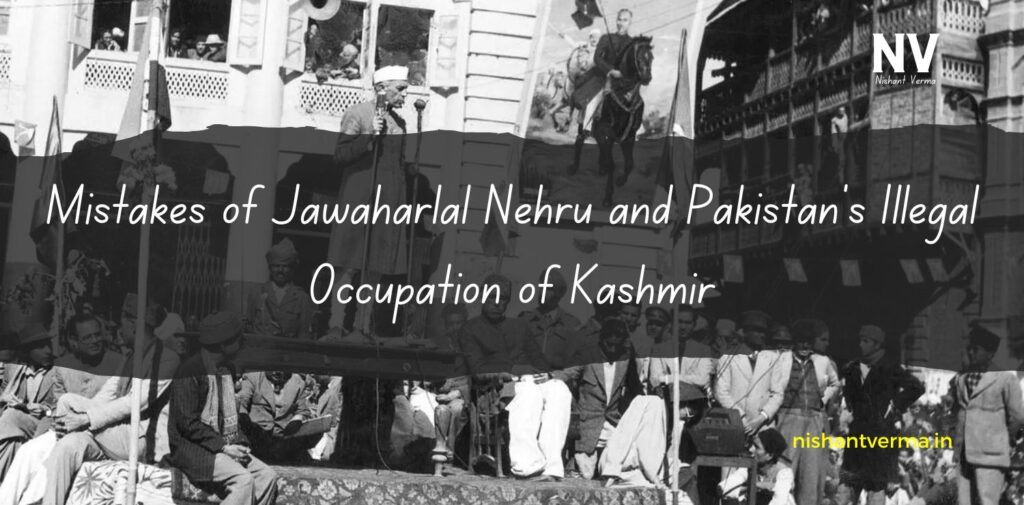The issue of Kashmir has been one of the most contentious and complex geopolitical challenges in South Asia since the partition of British India in 1947. The roots of the Kashmir conflict trace back to the partition, which created two separate dominions: India and Pakistan. At the heart of this conflict lies the state of Jammu and Kashmir (J&K), a region that both countries claim in its entirety but control only parts of. Jawaharlal Nehru, the first Prime Minister of independent India, played a central role in shaping India’s position on Kashmir.
However, a series of decisions and strategic mistakes made by Nehru in the early years of independence are widely regarded as having contributed to Pakistan’s illegal occupation of parts of Kashmir, and the protracted conflict that followed.
This article explores the key Mistakes of Jawaharlal Nehru and Pakistan’s Illegal Occupation of Kashmir.
The Complex Background of Kashmir
When India gained independence in 1947, the princely states, which were semi-autonomous regions under British suzerainty, were given the option to join either India or Pakistan or remain independent. Jammu and Kashmir, a princely state located in the northern part of the subcontinent, was ruled by Maharaja Hari Singh, a Hindu ruler in a majority Muslim state. Hari Singh, like many other princely rulers, was initially hesitant to join either India or Pakistan, preferring to remain independent.
The situation in Kashmir changed dramatically in October 1947 when tribal militias from Pakistan, backed by the Pakistani military, invaded Kashmir. Faced with this external aggression, Maharaja Hari Singh sought military assistance from India. However, India agreed to provide help only if the Maharaja signed the Instrument of Accession (IoA), a legal document that would formalize Kashmir’s accession to India. Hari Singh signed the IoA on October 26, 1947, and Indian troops were sent to Kashmir to defend the region.
Thus, Kashmir’s initial association with India was based on the legal document of accession, which Pakistan has never accepted. The subsequent military and diplomatic manoeuvring by both India and Pakistan over Kashmir laid the foundation for decades of conflict.

Mistake 1: Decision to Refer the Kashmir Issue to the United Nations
One of the most significant mistakes made by Jawaharlal Nehru was his decision to take the Kashmir issue to the United Nations. After India had sent troops to Kashmir to repel the Pakistani-backed invaders, Nehru, under pressure from international diplomacy and the need for a peaceful resolution, decided to refer the matter to the United Nations Security Council (UNSC). The result was UN Resolution 47, passed in 1948, which called for a ceasefire and stipulated that a plebiscite be held in Kashmir to determine its future status.
While the intention behind seeking UN intervention was to secure international legitimacy for India’s position and bring about a peaceful resolution, the decision was flawed for several reasons:
- Internationalization of the Kashmir Issue: By taking the Kashmir issue to the UN, Nehru allowed international powers to become involved in a bilateral dispute between India and Pakistan. This shifted the focus away from the legal basis of the Maharaja’s accession to India and instead made the dispute a global issue. The UN resolution effectively invited external interference in what should have been an internal matter for India, undermining India’s sovereignty over Kashmir.
- Unintended Consequences of a Plebiscite: The UN’s call for a plebiscite in Kashmir was a mistake for several reasons. Firstly, the plebiscite was conditional on Pakistan withdrawing its forces from the areas it had illegally occupied, which it never did. Secondly, the plebiscite, if conducted under the conditions set by the UN, could have led to a situation where Kashmir, a region with a significant Hindu minority and a history of relatively secular governance, might have been annexed by Pakistan. This was a scenario India could not afford, especially considering the region’s strategic importance.
- Failure to Recognize the Instrument of Accession: The UN’s involvement and the subsequent push for a plebiscite overshadowed the legal and constitutional basis of Kashmir’s accession to India. Nehru failed to insist strongly enough on the argument that Kashmir’s accession to India was a lawful and sovereign decision made by its ruler. Instead, he allowed the dispute to be framed as one of competing claims between India and Pakistan.
Mistake 2: Failure to Secure the Entire Kashmir Region
Another critical mistake that contributed to Pakistan’s illegal occupation of parts of Kashmir was Nehru’s failure to secure the entire region of Jammu and Kashmir. After India intervened in Kashmir and the signing of the Instrument of Accession, Indian forces were able to repel the Pakistani-backed invaders and stabilize the situation in most parts of the region. However, by the time a ceasefire was brokered in January 1949, Pakistan had managed to occupy a significant portion of the region, including the area known as Azad Jammu and Kashmir (AJK) and Gilgit-Baltistan.
Several factors contributed to this failure:
- Indecision and Military Strategy: Nehru’s government failed to press for a complete military victory to secure the entire region of Kashmir. The Indian military had pushed back the Pakistani forces but was not given clear instructions to pursue the retreating invaders beyond the ceasefire line. This indecision allowed Pakistan to retain control over large swathes of territory, which it has held ever since.
- Focus on Diplomacy Over Military Solutions: Nehru, as a firm believer in diplomacy, focused on seeking international support and peace efforts rather than on securing a definitive military solution to the Kashmir conflict. The emphasis on a political settlement, as opposed to a military victory, left India with only partial control over Kashmir. This strategic misstep created a permanent division in the region, which continues to fuel the conflict to this day.

Mistake 3: Article 370 and Special Status of Jammu and Kashmir
In the aftermath of the initial conflict and the subsequent ceasefire, Nehru’s government granted Jammu and Kashmir special autonomy under Article 370 of the Indian Constitution. This provision allowed Kashmir to have its constitution, flag, and autonomy over most matters, except foreign affairs, defence, finance, and communications. While the intention was to appease Kashmir’s Muslim-majority population and integrate the region into India peacefully, the creation of this special status inadvertently sowed seeds of division and discontent within the region.
The special status was a double-edged sword:
- Alienation of Non-Kashmiri Hindus: The special status of Kashmir created a sense of separateness from the rest of India. It also led to a sense of exclusion among the non-Kashmiri Hindu population, who found themselves marginalized under the region’s unique laws. This sense of alienation contributed to the eventual rise of insurgency and militancy in the region in the late 1980s.
- A Long-Term Source of Discontent: The unique status of Jammu and Kashmir fueled Pakistani propaganda, which claimed that India had unfairly imposed its control over the region. Pakistan consistently used the special status as evidence of India’s unwillingness to integrate Kashmir fully, further complicating any potential peace settlement.

Mistake 4: Nehru’s Idealistic and Non-Pragmatic Foreign Policy
Nehru’s commitment to non-alignment, idealism, and the belief in global justice also led to mistakes in the handling of Kashmir. Nehru’s refusal to take a more pragmatic approach to dealing with Pakistan allowed the latter to use international forums like the UN to advance its claims over Kashmir. Nehru’s idealistic approach to global diplomacy often clashed with the hard realities of international relations and national security. This hampered India’s ability to navigate the Kashmir issue with the strategic foresight necessary to prevent Pakistan’s encroachment.
Conclusion: Mistakes of Jawaharlal Nehru
Jawaharlal Nehru’s decisions regarding Kashmir, while based on idealism and the desire for peace, were ultimately marked by significant strategic missteps. His decision to internationalize the Kashmir issue, the failure to secure the entire region after the 1947-48 conflict, the granting of special autonomy, and his broader diplomatic approach all played a part in enabling Pakistan’s illegal occupation of parts of Kashmir. These mistakes have had long-lasting implications, contributing to the enduring conflict and the ongoing struggles in the region. While Nehru’s policies were rooted in the desire for peace and stability, they inadvertently created a complex and enduring problem that continues to affect India, Pakistan, and the people of Kashmir to this day.




